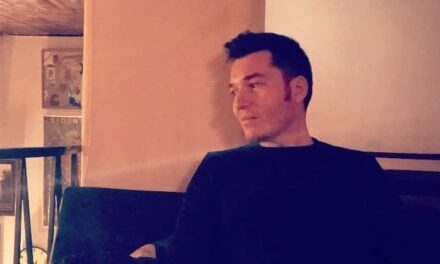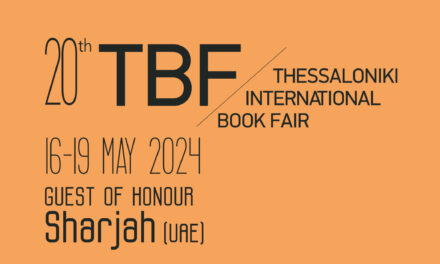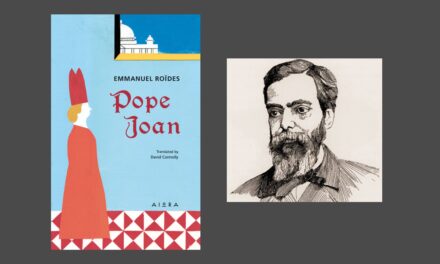Efstathia P. (pen name: tria epslion) was born in Thessaloniki in 1994. She speaks fluently English and Spanish from which she translates poems and essays in Greek. She has a Bachelor degree in Greek Literature and a MA degree in General and Comparative Literature. She is working as an educator, an editor and a translator. Her first writing venture I know those women who weave in the middle of the sea [γνωρίζω αυτές που πλέκουν στη μέση της θάλασσας] received the First Unpublished Poetry Collection Award by Thraka in 2022. The collection has also been shortlisted for the Award of the literary journal Anagnostis. Poems and translations of hers have been published in several digital and print magazines.
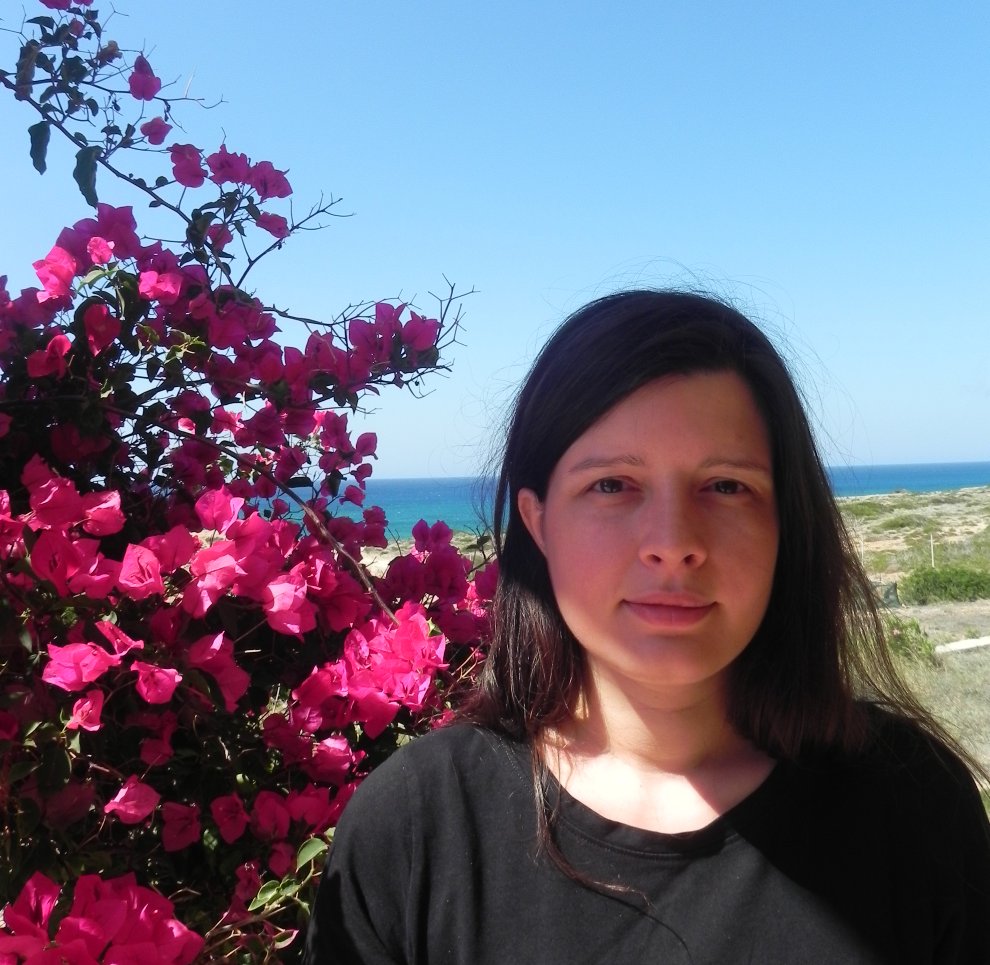
Your first writing venture I know those women who weave in the middle of the sea received the First Unpublished Poetry Collection Award by Thraka in 2022. Tell us a few things about the book. What about the title?
Last spring, when I was thinking about a potential title for my collection of poems, I realized that it is essentially a book that speaks about women trying to survive (literally and figuratively) on an island or in a country that is amidst the sea. Historically, women have found their power through telling stories. This was especially valuable for women who didn’t have a house (or a room) of their own. They resorted to creating a home, symbolically, with their voices and their presence. Until today, one of the most powerful tools a woman can use to reshape reality is her voice, as it is something that nobody can take away from her.
For me, this book is an attempt to depict and combine thoughts, images, and moments that were crucial to me. I brought them together to compose an image of a collective life with the Mediterranean landscape as its background. Its two parts reflect two aspects of life – social and personal. Sea, from this perspective, resembles a thin line in a child’s drawing, a border between what is visible and what is not. Above the sea, our everyday life, all these things that make us go on. Under the sea, people who didn’t make it, or at least, this part of the history that people don’t want to listen to.
Poet Tonia Tzirita Zacharatou has recently commented that contemporary poetry is characterized by a new sensitivity, by poems that talk about “the transformative dimension of friendship, the politics of love”. How is this new solidarity expressed in your poetry?
In the last decade, many female authors thematized the healing potential of female friendship, and it became a part of the debate about literature in the literary world. Rightfully so, because the moments in women’s everyday lives in which we express solidarity with other women, were neglected from the literary discussions for a long time. And, for me, the only way to survive and prosper is with solidarity: by forming safe spaces and fostering communities that position love as their primary goal. Friendship, especially women’s friendship, is radical: through strong bonds, it creates new forms of existence, reshaping the way of living. Women have always been kind and supportive to me and that’s how I am trying to be; not just to pay them back, but mostly as a means of survival. In this violent reality, it feels as if we only have each other. That is why we need to be gentler and kinder to our friends. We also need to talk and write more, making a statement about the current state of living, which is not functional any more.
Which are the main themes your poetry touches upon? How does the social and the political converse with the personal and the individual in your poems?
In my poems I mostly speak about what makes me feel. Inequality, migration, and social violence, but also love, hope, and friendship. I want to open up to readers and let them in – to speak about what I consider important. I am trying to share with others my perspective on things. Personal is always political and vice versa. I write about a lot of different topics such as surpassing cultural and physical borders, creating bonds with people, and living in solidarity. This is why I would say that my poetry mostly speaks about my reality, my experience as a human being, a woman ‘living in Greece’, and all the other realities that intersect with mine, primarily those of my students, friends, and fellow citizens.
What about language? What role does language play in your writings?
Language is a vehicle. I work as a teacher, mostly teaching Greek and English as second languages, while at the same time, I am an editor. For me poetry is sharing a point of view, making experience a common ground. So I try to write my thoughts, with a lot of detail, for the reader to recreate a moment, a moment in which I was present. Probably it might have been easier to become a photographer, but with poetry, I enjoy the fact that there is only language, it’s more direct. Language is a tool, and its primary goal is the transmission of ideas. For me, art for art’s sake is a dead end. We write things because we want people to read them, hoping that they will like them or at least that we will have the slightest interaction with them.
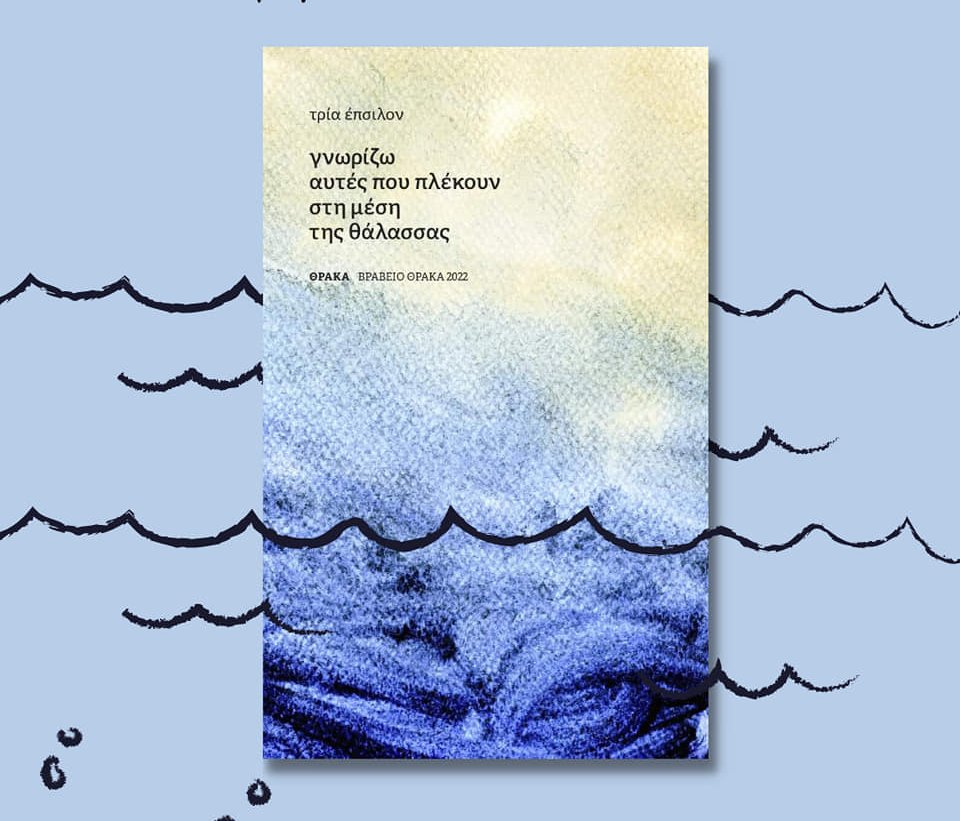
Which are the main challenges new writers face nowadays in order to have their work published? What role do the social media play in the promotion of new literary voices?
We should not forget that writing literature is usually a privilege. It requires time and resources. These are conditions that are not easily created, and also it’s becoming more and more difficult to strike a balance between being a partner, a worker, a political subject, and also an active artist. I won Thraka’s award, and I received a lot of support and care both from the publishing house but also from my editor Katerina Iliopoulou. I know that many people, including a lot of friends of mine, don’t face the same reality when they try to publish something.
The best way to share your work is through writing networks, festivals, fanzines, and other literature-related events. The Internet is also one of the tools that help young authors share their work. It makes literature more accessible and inclusive, both for authors and the readers. However, it would not be good for our reading practices to entirely move to an online sphere because, on the internet, texts are decontextualized and mass-produced. We need structural changes, but until then, the internet is a good coping mechanism.
How do young writers converse with global literary trends? Where does the local meet the national and the universal?
When I was studying Greek Literature, I was wondering why it is so important to identify the trends, topics, common motifs, and styles in poetry, since poetry was for me more of a diary back then. I was lucky enough to change my perspective through the years. I believe that it is important to create maps of the literary field because it is an alternate form of History, it expresses the unsaid. When we see certain topics becoming more common, such as gender or crisis, that means that the majority of the writers are probably affected by them and they wish to share their experience through literature.
But at the same time, talking about global literary trends is a very complex task, especially regarding poetry, which is usually less visible outside of its country of origin. Poetry is highly personal, as it comes from an author, but it is also a product of a collective. Thus, it is subjective, but it also relies on the shared understanding between a poet and the readers from the context it stems from. For instance, a woman in Greece that works in retail will face different problems than a migrant woman from an eastern country that works as a maid in a hostel, and their poetry will carry in itself the implications of different experiences in everyday life.
Of course, when women write to claim their rights through poetry, it is feminist poetry, but at the same time it is not a trend, it is simply a need that is being expressed; it is the way people are trying to survive, through their art, creating space for them in History, trying to find a place in the map. And that’s when the local meets the universal, and poetry becomes the language of our mutual understanding.
*Interview by Athina Rossoglou
TAGS: LITERATURE & BOOKS | READING GREECE

